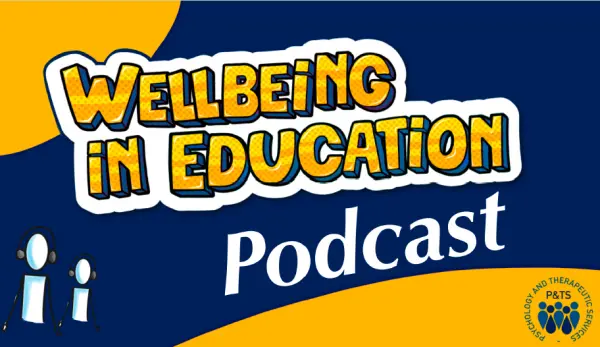You can read Suffolk County Council's statement on our website.


You can read Suffolk County Council's statement on our website.

Please find on this page Podcasts created or recommended by the Psychology and Therapeutic Services team to support school staff and families.
In this series of podcasts, Alice Clarke (Educational Psychologist, view One Page Profile) talks to people from around Suffolk who are working to improve and support wellbeing in education. This includes the wellbeing of children and young people, their families, and people working in schools and educational settings. Each episode is available as a video on YouTube, or as a traditional audio podcast on Spotify.
We would love to hear from a wide range of people on anything to do with wellbeing in education, whether you are working with pupils, families or setting staff. If you would like to talk about a wellbeing initiative or project on the podcast, please contact Alice using EducationMHLeadNetwork@suffolk.gov.uk
Watch the podcast episodes below.
As parents and families we are likely to have been shocked about the devastating situation in Ukraine. Our children will be having conversations with us and others and trying to make sense of what is happening.
So how do we talk to our children, who may be different ages and temperaments about this war; in a manner which helps them make sense of what is happening whilst not disproportionately increasing anxieties?
In this podcast episode Dr Beth Mosley (Consultant Clinical Psychologist) both mother and mental health professional, talks with Dr Kelsey Odgers (Clinical Psychologist) and Kelly (mother of two) about these dilemmas and some of the mistakes they might have made as parents during this time.
In their discussion they cover: Right place, right time, right pace to talk.
What does this actually look like? How we manage the exposure and time spent on news stories? And, how do we turn feelings into helpful actions.
This recording was made for our Mental Health and You podcast series. Listen to 'Talking to children about Ukraine War' Podcast.
Listen to the free Mental Health and You podcast series Or search for ‘Mental Health and You’ on Apple Podcasts.
Talking racism and mental health in schools. Podcast from Anna Freud aimed at school staff.
Coping with uncertainty about an honest conversation about the challenges of uncertainty.
Supporting children with emotional based school phobia/avoidance with Tina Rae - In this podcast (originally broadcast in April 2021), Dale Pickles talks with Tina Rae about Emotionally Based School Avoidance in reference to her new book on the same topic. This would be of interest to professionals, parents and carers.